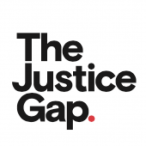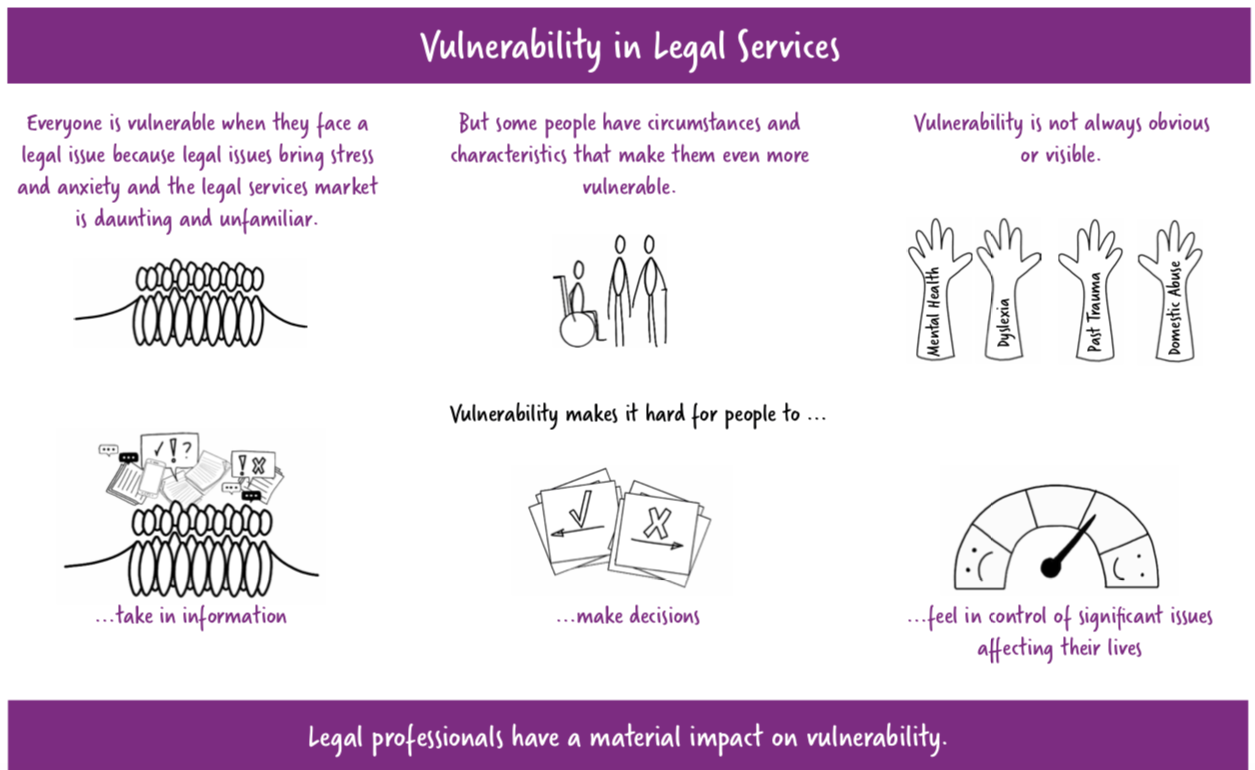The vulnerability of clients is being exacerbated by the ‘cold, clinical or chaotic manner’ of some lawyers, according to a report by the oversight regulator of legal services. The Legal Services Board (LSB) said the use of technical terms and jargon, as well as a lack of empathy, are putting vulnerable clients at further disadvantage.
The report, Vulnerability in Legal Services, recommended an inclusive design approach ‘based on the needs of people when they are at their most vulnerable’. Community Research carried out 30 interviews with vulnerable clients who had sought legal advice in the past 18 months and 10 with professionals at support and advice organisations (here). Eleven participants were ‘situationally’ vulnerable due to the factors that prompted their legal needs while 19 had additional risk factors including poverty, domestic abuse and disabilities.
The report found their lasting impressions were based far more on the extent to which legal professionals responded to what made them vulnerable than the outcome of their cases. In one example, a woman fleeing an abusive relationship was left with a £3,000 debt after she was forced to seek alternative representation when her first solicitor did not apply for legal aid or prioritise obtaining the orders required to protect her and her children.
The report highlighted examples of legal professionals reducing feelings of vulnerability and reassuring clients, including by creating a welcoming environment and using layperson’s terms. However, other legal professionals disadvantaged their clients by failing to manage expectations and showing a lack of empathy for those who had experienced trauma.
Participants called for improvements to ensure clients understand the legal implications of their situations, the language used and what is happening with their cases. Matthew Hill, LSB chief executive, said: ‘Many people can be inherently vulnerable when going to a legal professional. This can be compounded by their personal circumstances. So it is vital that legal services are designed and delivered with these vulnerabilities in mind.’
Stephanie Orr, policy officer at charity Surviving Economic Abuse, said: ‘We are encouraged by the recommendations laid out in the report and hope this can provide a clear guide to legal services representing victim-survivors of abuse.’








